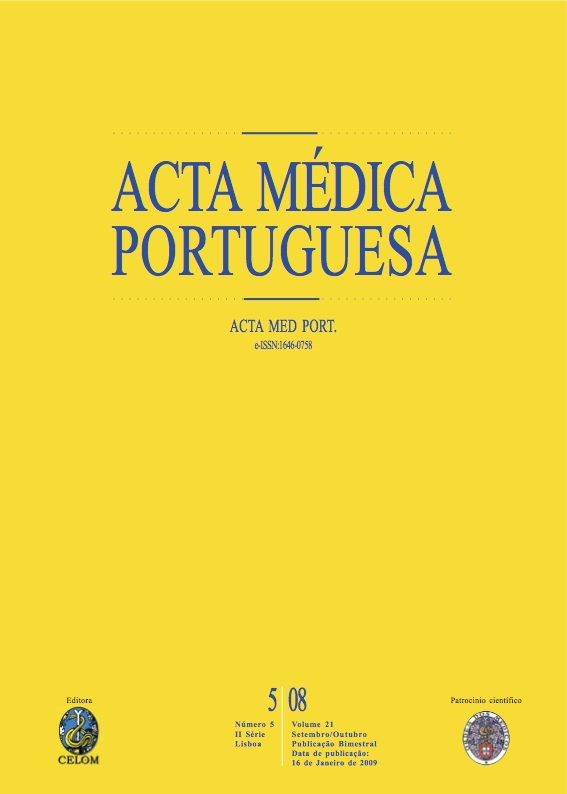Indications for upper gastrointestinal endoscopy. The accuracy of the American Society for Gastrointestinal Endoscopy guidelines in a Portuguese hospital.
DOI:
https://doi.org/10.20344/amp.1643Abstract
The appropriateness of the indications for upper gastro-intestinal endoscopy (EGD) is crucial in assessing quality in endoscopy units, improving cost-effectiveness and providing better patient care. Using the American Society for Gastrointestinal Endoscopy (ASGE) guidelines, the aim of this study was to evaluate the appropriate use of EGD and to measure the local accuracy of these guidelines.Over a two year period information was gathered on 2305 consecutive patients--1146 (50% males)--of whom had an EGD performed at our unit. Patients were referred for EGD by other physicians of the hospital staff or through the gastroenterology out-patient clinic. The appropriateness, sensitivity, specificity and predictive value of the ASGE guidelines were established using EGD diagnosis as gold standard. Atrophic gastritis and hiatus hernia were considered irrelevant diagnosis.According to the ASGE guidelines the rate of inappropriateness was 20%. No lesions or irrelevant lesions were found in 30.6% EGD. Appropriately indicated endoscopies disclosed significantly more clinically relevant findings (71.3%) than endoscopies performed with indications that were not ASGE listed (61.7%) - p < 0.01, OR = 1.55, 95% CI (1.24-1.92) but no significant difference was found between appropriateness and inappropriateness in patients with a diagnosis of gastric cancer: p = 0.21, OR = 1.53, 95% CI (0.75-3.21). The sensitivity of the ASGE criteria was 82.1%, the specificity 25.2%, the positive predictive value 71% and the negative predictive value 38.1%. Gastric cancer was found in 10 (0.4%) of the patients not appropriately indicated.In this Portuguese population sample, the accuracy of the ASGE guidelines is too low to be confidently acceptable. This suggests that, in Portugal, a country with a high prevalence of gastric cancer, wider criteria must be applied, if useful local guidelines for appropriate referrals are expected.Downloads
Downloads
How to Cite
Issue
Section
License
All the articles published in the AMP are open access and comply with the requirements of funding agencies or academic institutions. The AMP is governed by the terms of the Creative Commons ‘Attribution – Non-Commercial Use - (CC-BY-NC)’ license, regarding the use by third parties.
It is the author’s responsibility to obtain approval for the reproduction of figures, tables, etc. from other publications.
Upon acceptance of an article for publication, the authors will be asked to complete the ICMJE “Copyright Liability and Copyright Sharing Statement “(http://www.actamedicaportuguesa.com/info/AMP-NormasPublicacao.pdf) and the “Declaration of Potential Conflicts of Interest” (http:// www.icmje.org/conflicts-of-interest). An e-mail will be sent to the corresponding author to acknowledge receipt of the manuscript.
After publication, the authors are authorised to make their articles available in repositories of their institutions of origin, as long as they always mention where they were published and according to the Creative Commons license.









